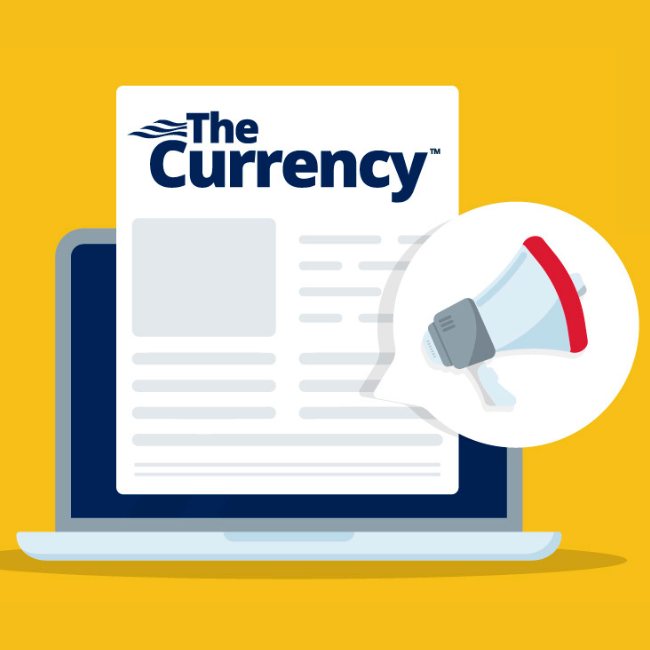How spring cleaning finances could save money
How spring cleaning finances could save money
How spring cleaning finances could save money


Listen
·Amidst the hustle of tax season, March also brings the bustle of spring. With 80% of Americans planning to spend time spring cleaning this year, don’t forget that finances could also benefit from a refresh.1
Not only does this allow people to check in on goals and the progress they’re making, it’s also an opportunity to save money for those rainy days. Close to two in five Americans (37%) say they couldn’t afford an emergency expense over $400, according to Empower research.
Get the timing right
More daylight at this time of year can be a fun escape, though there’s no room to run when it comes to paying bills. Penalties kick in when people miss or make a late payment, and credit card companies collected more than $14 billion in these fees in 2022.2
It’s a timely reminder that avoiding these penalties is a step within consumers’ control.
Keeping a list of recurring bills and when their payments are due is a great starting point and will prompt people to reflect on whether keep paying for all those services. Calendar reminders can serve as self-checkpoints, and setting up autopay can also relieve some of that mental load.
Free from the paper trail
Piles of paper around the house are another target for deep cleaners, but people should take a close look before feeding them to the shredder or recycling bin. The IRS recommends keeping tax records for three years, possibly longer if certain situations apply. It’s important to safeguard any estate planning documents like a will, trust, or bank account information.3
Beyond the financial essentials, a flood of mailers can be taking up space: 63 billion postcards, coupons, catalogs and product offers were sent to Americans in 2022, otherwise known as junk mail.4 A site set up by the Association of National Advertisers, DMAchoice.org, allows Americans to pay a small fee in exchange for cutting the amount of promotional offers. Prescreened offers for financial products like new loans, insurance, or credit cards are also mailbox staples. Thanks to the 1996 Fair Credit Reporting Act, people can withdraw from them for five years, using the OptOutPrescreen.com website.
Declutter digital stacks
Reclaiming space also applies to online emails and accounts. The Federal Trade Commission reports that consumers lost more than $10 billion to fraud in 2023, setting a new high that is a 14% year-over-year increase.5
Freshening up passwords for logins can pay off in terms of time, frustration, and identity protection. Password strength is a mix of complexity, variety, and organization, and a password manager service can help with those tasks.
Investing some time clicking “unsubscribe” prompts within email inboxes will also cut down the amount of unnecessary inbound messages and, in turn, gives more space to the notifications that really need attention (like those bill reminders).
Keep a clean slate
With strong habits in place, it can be easier to keep them going as the seasons change. It’s normal for finances to need polishing during the year, and making time for maintenance will help avoid accumulating too much buildup.
Get financially happy
Put your money to work for life and play
1 Business Wire, “Are You Ready to Clean Behind the Couch? Americans List Their Spring Cleaning Targets,” March 2025.
2 The Washington Post, “U.S. caps credit card late charges in new Biden crackdown on junk fees,” March 2024.
3 IRS, “How long should I keep records?,” accessed March 2025.
4 The Washington Post, “How to keep junk snail mail out of your mailbox forever,” September 2023.
5 Federal Trade Commission, “As Nationwide Fraud Losses Top $10 Billion in 2023, FTC Steps Up Efforts to Protect the Public,” February 2024.
RO4292498-0325
The content contained in this blog post is intended for general informational purposes only and is not meant to constitute legal, tax, accounting or investment advice. You should consult a qualified legal or tax professional regarding your specific situation. No part of this blog, nor the links contained therein is a solicitation or offer to sell securities. Compensation for freelance contributions not to exceed $1,250. Third-party data is obtained from sources believed to be reliable; however, Empower cannot guarantee the accuracy, timeliness, completeness or fitness of this data for any particular purpose. Third-party links are provided solely as a convenience and do not imply an affiliation, endorsement or approval by Empower of the contents on such third-party websites. This article is based on current events, research, and developments at the time of publication, which may change over time.
Certain sections of this blog may contain forward-looking statements that are based on our reasonable expectations, estimates, projections and assumptions. Past performance is not a guarantee of future return, nor is it indicative of future performance. Investing involves risk. The value of your investment will fluctuate and you may lose money.
Certified Financial Planner Board of Standards Inc. (CFP Board) owns the certification marks CFP®, CERTIFIED FINANCIAL PLANNER™, CFP® (with plaque design), and CFP® (with flame design) in the U.S., which it authorizes use of by individuals who successfully complete CFP Board's initial and ongoing certification requirements.





